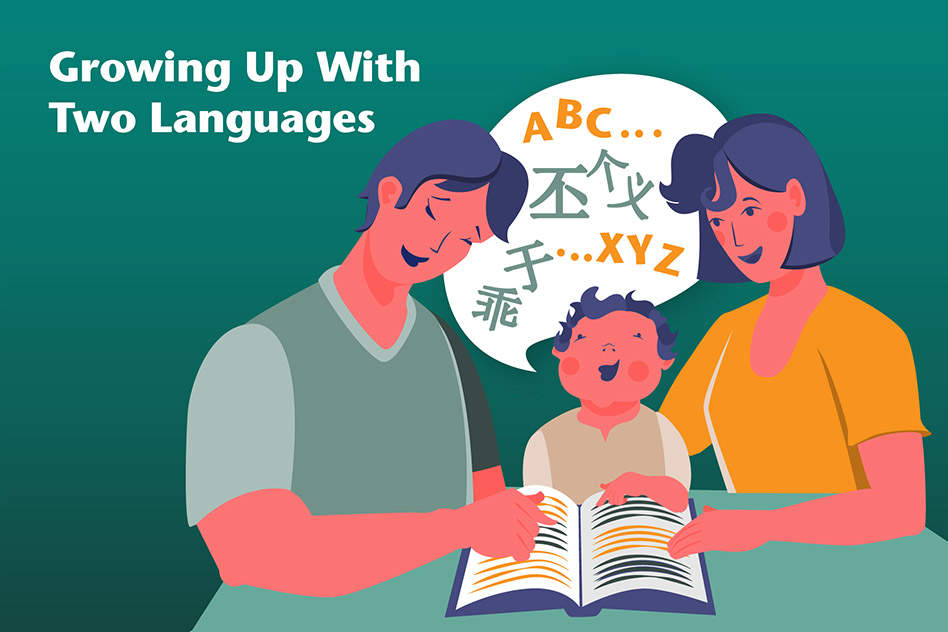Reasons to Learn a New Language – and How to Get Started
Posted on: June 22, 2020
There are many reasons why we might learn a language; a second language connects us to the culture of another person, or group of people, by helping us understand their way of life and means of expression; research shows that mentally our brains develop differently if we learn more than one language – and in different ways, depending on the age of the learner; and finally, exploring another language can help us better understand the use of our own native tongue.
The benefits of learning a second language:
First let’s explore the scenario in which we do not ‘choose’ to learn a new language. This will be because we are raised as bi- or multi-lingual, with parents speaking different languages to us before we are even able to talk. The research into this reflects on the impact learning a second language can have on us, even at later stages of our lives.
Growing Up With Two Languages combines research-informed advice and the experience of parents raising children as speakers of a wide range of languages in every populated continent in the world.
It presents to us the challenges for children to adapt to a bilingual upbringing with cultural and social clashes, but highlights that the benefits are immense too:
“An individual’s languages affect each other, and a multilingual person’s languages are always activated. In fact, there is evidence to suggest that this is an advantage, as the languages seem to support each other: ‘it is important not to imagine a bilingual’s two languages and two worlds as subtracting from each other or competing against each other. Much to the contrary, the research is conclusive in showing supportive interactions in the two languages’.”

Other recent research suggests that there are individual differences in attainment of proficiency in the second language which are not necessarily age-related. Not all those who have more than one language from birth end up with high-level proficiency in both languages, while many second-language learners who begin learning a language as adults become highly proficient.
This brings us to the second scenario — learning a second language as an adult. As an adult, being able to communicate in a second language is widely considered an asset; from career choices to the benefits of the workings of your brain; and on a more human level, allowing the speaker to have perspective and insight on the multi-cultural world around them. How then, do we know that we are able to learn a new language successfully?
What it takes to learn a new language
Perhaps these words sound familiar?
‘I’m terrible at speaking other languages'
‘I was no good at learning languages at school’
As adults, we often doubt our ability to learn new language skills.
However, when it comes to language aptitude, says author of The Psychology of the Language Learner Zoltán Dörnyei, one variable that has been found to significantly affect language learning success is motivation:
It is easy to see why motivation is of great importance. Without sufficient motivation, even individuals with the most remarkable abilities cannot accomplish long term goals, and neither are appropriate curricular and good teaching enough on their own to ensure student achievement. On the other hand, high motivation can make up for considerable deficiencies both in one’s language aptitude and learning conditions.
A good example is given by leading aptitude researcher Robert Sternberg (2002):
“Much of what appears to be foreign-language learning aptitude may reflect a valuing process. In Belgium, those who learn Flemish as a first language are much more likely to learn a second and even a third language than are those who learn French as a first language. Why? Can anyone seriously believe that the difference is one of language-learning aptitude? Probably not. Rather, the difference is that of the perceived need for additional languages. There is a practical need for additional languages, and the languages are taught with this practical use in mind…”
Although Dörnyei explains the concept of language aptitude is related to the broader concept of human abilities, covering a variety of learner differences, the research presented around motivation suggests there is no reason why an individual should not be able to learn a new language if they want to.
How to start learning a new language
If you are considering learning a new language yourself but don’t know where to start, why not visit the Routledge Colloquials site. With wonderful resource and lots of free audio available, you can select a language from our interactive map to find out more about it:
With over 70 languages to choose from, Routledge Colloquials offer the most comprehensive range of language courses. Each Colloquial has been carefully developed by experienced teachers to provide a step-by-step guide to the language as it is written and spoken today.
Recommended Reads and Resources:
Routledge Colloquial Languages offers language courses with no prior knowledge of the language required. Combining a clear, practical and accessible style with a methodical and thorough treatment of the language, each course equips learners with the essential skills needed to communicate confidently and effectively in the target language in a broad range of situations.
Teaching and Learning Languages: A Practical Guide to Learning by Doing promotes that learning a language, especially in a class or group, is an intensely practical subject, with active participation by students is the key to successful language learning at any age or ability level. This book offers a multitude of practical activities in which students take the lead, and clearly links these to the various linguistic and pragmatic skills.
Growing Up With Two Languages combines research-informed advice and the experience of parents raising children as speakers of a wide range of languages in every populated continent in the world. Take a look at the dedicated website for this book: it contains extra material that may be of interest to parents, teachers and healthcare professionals who come in contact with families who are raising children with more than one language. There are stories from parents and adult children about their experiences, as well as materials for parents who may wish to keep track of their child’s multilingual development for their own interest. Visit the The Growing Up With Two Languages facebook page here.
Teaching and Learning Foreign Languages provides a comprehensive history of foreign language teaching and learning in the UK from its earliest beginnings, as well as an overview of changing approaches, methods and techniques in language teaching and learning.
Stereotypes and Language Learning Motivation explores stereotypes that learners of six Asian languages hold about the target language country, its cultures and people. This book will appeal to all readers interested in stereotypes that people have about foreign countries and also to educators and researchers who study language learning motivation.
An Introduction to Foreign Language Learning and Teaching provides an engaging, student-friendly guide to the field of foreign language learning and teaching. Aimed at students with no background in the area and taking a task-based approach.


